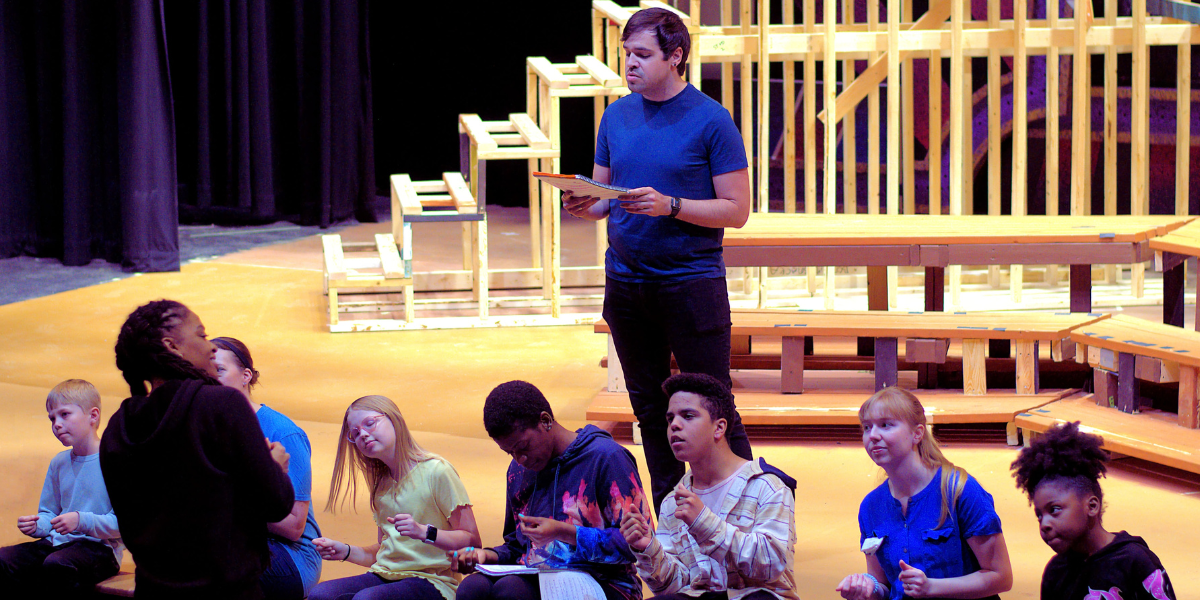
15 Tips for Making Social Connections While Homeschooling
Discover practical tips to build strong social connections and a supportive community while homeschooling.
Homeschooling offers flexibility and personalized education, but one common concern among parents is how to ensure their children develop strong social skills. The great news is that homeschoolers have many opportunities to engage with others, build friendships, and learn important social skills in fun and meaningful ways. Here are 15 ideas to help your homeschooling child stay socially connected and thrive.

1. Join a Homeschool Co-op
Homeschool co-ops are groups of families who meet regularly for educational and social activities. These co-ops often offer group classes, field trips, and social events, allowing kids to interact with peers in structured and casual settings.
To find a homeschool co-op, start by asking local homeschooling families or searching online through platforms like Facebook groups, homeschool forums, or local homeschool association websites. You can also check with local churches, libraries, and community centers, as they often host or sponsor co-ops. Attending local homeschool events or joining homeschool associations can also connect you with co-ops in your area.
2. Participate in Local Sports Teams
Local recreational sports leagues, such as soccer, basketball, or swimming, are fantastic ways for homeschooled children to meet new friends, develop teamwork skills, and stay active.
Each of our homeschool state resource articles includes a list of homeschool resources specific to your state. To find sports opportunities in your area, simply locate your state in the list, then click on “Sports Opportunities” in the table of contents at the top. This will direct you to the relevant opportunities available in your state.
In addition, the YMCA offers various classes, including swimming, dance, and youth sports, all of which are excellent for socializing while staying active and learning new skills.
3. Take Art or Music Classes
Sign your child up for group art or music lessons. Community centers, art studios, and music schools often offer programs designed to teach skills while fostering collaboration and friendship.
4. Attend Library Programs
Many public libraries offer programs for children, such as book clubs, story time, clubs based on interests and craft activities. These are excellent opportunities for homeschooled children to socialize with other kids and participate in group activities.
Support Your Homeschool with ABCmouse and Adventure Academy
Our digital learning programs are designed by curriculum experts to assist your homeschool and children ages 2 through 13. ABCmouse is a comprehensive online educational platform for children ages 2-8, while Adventure Academy focuses on children ages 8-13. Both programs provide access to lessons on reading, language arts, math, sciences, social studies, and more. Learn more about how each program can enhance your homeschool below.
ABCmouse and Homeschooling
ABCmouse offers over 10,000 learning activities and more than 850 lessons for children, plus a large digital library of books and educational puzzles, songs, activities, and worksheets. The program encourages self-paced learning with motivating rewards and includes progress tracking, which allows home educators to monitor time spent on certain subjects and the number of activities completed.

Then just $14.99/mo. until canceled
As a paid add-on to regular subscriptions, home educators can access the Assessment Center, which allows parents and caregivers to test children on their knowledge, determine successes and struggles, and receive recommended lessons based on assessments.
ABCmouse provides a robust curriculum that can supplement other early learning lessons. It’s trusted resource that’s been downloaded over 10 million times and has a 4.5-star average out of 831.4K ratings.
Adventure Academy and Homeschooling
Adventure Academy combines an interactive world with a curriculum covering reading, language arts, math, science, and social studies. With quests, games, and educational videos and activities, learning becomes an epic journey that motivates kids to explore various topics.
For homeschooling families, Adventure Academy offers an engaging, flexible learning experience that can supplement other educational materials. The program features thousands of activities created by curriculum experts and covers all major academic domains.
Parents and caregivers can choose academic difficulty levels and track each child’s progress, seeing time spent in Adventure Academy, activities completed, and subjects studied.
Adventure Academy emphasizes key topics such as reading comprehension, vocabulary development, mathematical operations, fractions, world geography, American history, physical science, life science, earth science, and scientific inquiry.
For more information, visit AdventureAcademy.com.
5. Go to Park Meetups
Check for local homeschool park meetups in your area. Parents often organize informal gatherings at local parks where children can play, interact, and build friendships in a relaxed environment.
6. Join 4-H or Scouts
Organizations like 4-H or Scouts provide structured opportunities for homeschooled children to engage in group activities, learn leadership skills, and contribute to community service projects, all while making new friends.
7. Attend Field Trips with Other Homeschoolers
Plan field trips with other homeschooling families to museums, zoos, historical sites, or nature preserves. Group outings are great for both learning and socializing while exploring local attractions.
8. Participate in Community Theater
Community theater programs welcome children of all ages and provide a fun way to work on communication skills, build confidence, and meet new people through performing arts.

9. Volunteer Together
Volunteering can help children develop empathy and teamwork skills. Look for opportunities to volunteer as a family or with other homeschooling families at local shelters, food banks, or other community organizations and events.
10. Get Involved in Faith-Based Groups
Many religious organizations offer youth groups, Sunday school classes, and community service projects. These activities provide opportunities for socializing while reinforcing values and building friendships.
11. Join a Robotics Club
Joining a robotics club is a great way to dive into the world of technology and engineering while developing teamwork and problem-solving skills. Look for local robotics clubs through your community centers, or organizations like FIRST Robotics, VEX Robotics, or local STEM programs.
Many clubs are also listed online through platforms like Facebook groups. You can reach out to club organizers or school staff to inquire about joining or attending a meeting to see if it’s a good fit.
Be sure to ask about any prerequisites, fees, or materials needed. Whether you’re new to robotics or have experience, most clubs offer opportunities for all skill levels and provide hands-on experience in building and programming robots.
12. Attend Homeschool Conferences or Events
Homeschooling conferences and conventions often feature workshops, classes, and social events designed for both parents and children. Attending these events gives you and your child the chance to meet homeschoolers from different areas and make new friends.
13. Take Online Classes with Group Interaction
Many online homeschool programs include options for group projects or interactive lessons. These virtual interactions allow students to engage with peers from across the country or even internationally.
14. Visit Homeschool Days at Theme Parks
Some theme parks host homeschool days with special rates and educational activities. These events provide a fun way for homeschool families to meet and socialize while enjoying the park.
15. Participate in Science Fairs
Many communities and homeschool groups host science fairs where children can present their projects and interact with other young scientists. This provides a great opportunity to work on public speaking and collaboration skills.
Expert Tips from Seasoned Home Educators
Building a rich social network can enhance your homeschooling experience. Fellow home educators can share tips and resources and provide friendship and support for you and your children. To help you create your own network of friends, these veteran homeschoolers are sharing insights and ideas on how to socialize when homeschooling.
It’s More Than Playing With Other Kids
Not only is socialization important, but asking about it shows that a new homeschooler is thinking ahead and trying to make sure their children are involved outside of the home.
Thankfully, there are many ways to socialize with other children and adults throughout the homeschool day–there’s never a shortage of opportunities. Socialization is more than just playing with children their age. It includes knowing how to behave at a restaurant, how to speak to the local librarian, how to share playground equipment at the park, and more.
Here are some of my favorite ways to encourage socialization that worked well with my kids:
- Attend library story times during the week.
- Go to the playground.
- Join a homeschool co-op if that’s right for your family.
- Interact with cashiers at the store and go out to eat.
- Enroll in gymnastics, dance, or sports classes.
- Take craft or art classes.
- Attend live online courses where students can interact with the teacher and each other.
Giving your children many well-rounded socialization opportunities is the easiest way to ensure they know how to interact with adults and other children. And that is, ultimately, the goal of any socialization effort.


Try the Library and Local Classes
There is often a stigma surrounding homeschooling–especially with those who have no experience with it–that it is impossible or at least difficult to provide social experiences for your children if you choose to homeschool. This idea could not be further from the truth!
While homeschooling families don’t meet new friends at the local school, there are many ways that homeschooling families choose to interact with the world, and, not surprisingly, they use the same approach as non-homeschooling families.
Here are a few ways that homeschooling families can socialize in their community.
- Participate in youth sports.
- Enroll in music lessons.
- Join a co-op.
- Get connected with events through your local library.
- Attend church activities.
- Take classes at local organizations.
Our local library keeps a monthly calendar of a variety of events that are free and grouped by age. Social media is also a great tool for homeschool educators to find events to connect with others. In my local community, homeschool Facebook groups share ideas and events with one another.
For some, the value of spending time at home learning together exceeds the worry of missing out on regular social interaction outside the home.


Look Online
When we started homeschooling, I was pleasantly surprised with how many opportunities my boys had to interact with people of all ages (not just their peers). I still have a good chuckle when I’m out and about with my boys and other adults comment on how well-mannered my boys are and their ability to have a friendly conversation. Those adults are often shocked that we homeschool– I love breaking those types of homeschool myths!
As a homeschool mom, I have found my people through Facebook groups and forums. My homeschool friends can be found around the country and the world. I have found it refreshing and inspiring to know homeschoolers with different educational approaches and from other cultures. The best part is when our kids can connect via email, Zoom meetings, and FaceTime.
Many of my homeschool friends participate in co-ops for socialization, enrichment, and classes. Unfortunately, we don’t have a co-op close to us. Homeschooling is not common in our area. (I believe there are only three other homeschool families in our school district.)
I don’t specifically focus on helping my boys meet other homeschoolers. Locally, my boys have found friends based on their interests (like soccer and chess), our church, and community events. Online sites can also provide safe opportunities for homeschool kids to find and interact with each other.


More from ABCmouse:
-
Am I Qualified to Homeschool? Yes—Here’s Why!
Wondering if you’re qualified to homeschool? Yes, you are! Homeschooling is about building a learning relationship, not needing to know everything. With a high school diploma…
-
Is Virtual School the Same as Homeschooling? Here’s What to Know
Homeschooling and virtual school are both alternatives to traditional classroom settings, but they differ in who leads the education. Virtual school is teacher-led, with set schedules…
-
15 Socialization Tips for Homeschool Families
Explore 15 practical tips to help homeschoolers build social connections, from joining co-ops and participating in local sports to attending homeschool days at theme parks. Discover…
-
10 Easy Steps to Start Homeschooling
Discover 10 easy steps to start homeschooling, from researching laws and finding resources to creating a flexible plan. Learn from veteran homeschoolers with practical tips on…
-
What’s Your Homeschooling Style? Explore These 10 Approaches
Explore various homeschooling styles, from traditional and Montessori to unschooling and worldschooling. Each approach offers unique methods to personalize your child’s education, allowing flexibility to choose…
-
What is Worldschooling: How to Educate While Traveling
Worldschooling combines travel with education, offering children hands-on learning through cultural experiences. Families may use homeschooling, local schools, or unschooling methods. While it fosters global awareness…








